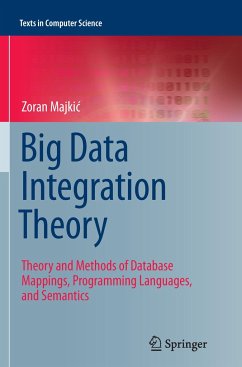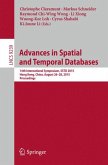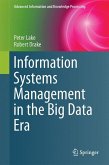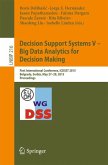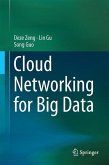This book presents a novel approach to database concepts, describing a categorical logic for database schema mapping based on views, within a framework for database integration/exchange and peer-to-peer. Database mappings, database programming languages, and denotational and operational semantics are discussed in depth. An analysis method is also developed that combines techniques from second order logic, data modeling, co-algebras and functorial categorial semantics. Features: provides an introduction to logics, co-algebras, databases, schema mappings and category theory; describes the core concepts of big data integration theory, with examples; examines the properties of the DB category; defines the categorial RDB machine; presents full operational semantics for database mappings; discusses matching and merging operators for databases, universal algebra considerations and algebraic lattices of the databases; explores the relationship of the database weak monoidal topos w.r.t. intuitionistic logic.
"All topics are studied in detail consistently in terms of category theory. ... Each chapter of the book ends with a couple of 'review questions'. Textbooks often provide teachers with supplementary material indicating the correct answer - surely this will also be the case here. Also by 'researchers interested in methods of computer science used in databases and logics, and the original contributions - a category theory applied to databases" will this book be well accepted." (Antonin Riha, zbMATH, Vol. 1325. 68004, 2016)
"The author has written a number of papers on data integration theory and this book is a compendium of these papers ... . It would be an ideal companion for a research student working with theoretical database concepts." (M. S. Krishnamoorthy, Computing Reviews, September, 2014)
"The author has written a number of papers on data integration theory and this book is a compendium of these papers ... . It would be an ideal companion for a research student working with theoretical database concepts." (M. S. Krishnamoorthy, Computing Reviews, September, 2014)
From the book reviews:
"The author has written a number of papers on data integration theory and this book is a compendium of these papers ... . It would be an ideal companion for a research student working with theoretical database concepts." (M. S. Krishnamoorthy, Computing Reviews, September, 2014)
"The author has written a number of papers on data integration theory and this book is a compendium of these papers ... . It would be an ideal companion for a research student working with theoretical database concepts." (M. S. Krishnamoorthy, Computing Reviews, September, 2014)

